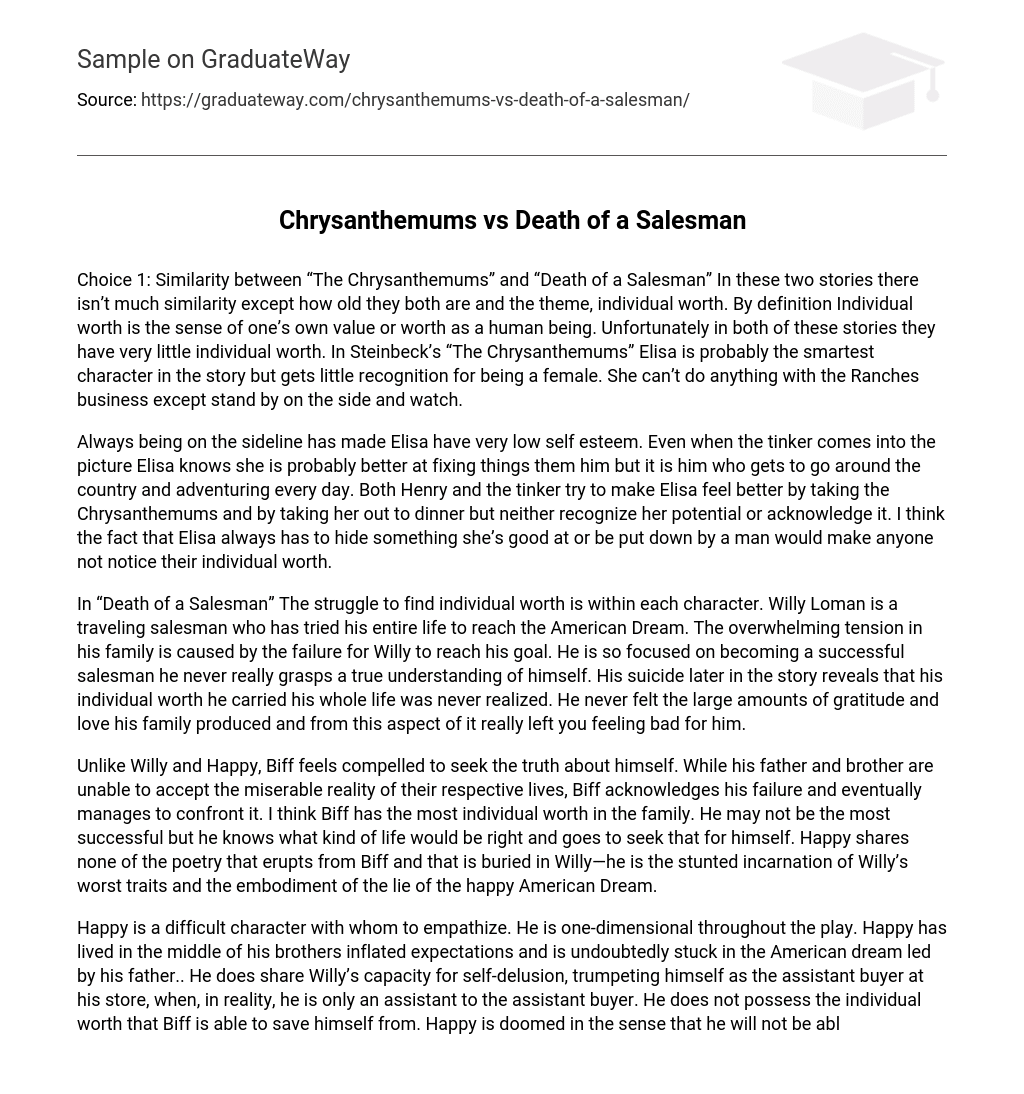Choice 1: Similarity between “The Chrysanthemums” and “Death of a Salesman” In these two stories there isn’t much similarity except how old they both are and the theme, individual worth. By definition Individual worth is the sense of one’s own value or worth as a human being. Unfortunately in both of these stories they have very little individual worth. In Steinbeck’s “The Chrysanthemums” Elisa is probably the smartest character in the story but gets little recognition for being a female. She can’t do anything with the Ranches business except stand by on the side and watch.
Always being on the sideline has made Elisa have very low self esteem. Even when the tinker comes into the picture Elisa knows she is probably better at fixing things them him but it is him who gets to go around the country and adventuring every day. Both Henry and the tinker try to make Elisa feel better by taking the Chrysanthemums and by taking her out to dinner but neither recognize her potential or acknowledge it. I think the fact that Elisa always has to hide something she’s good at or be put down by a man would make anyone not notice their individual worth.
In “Death of a Salesman” The struggle to find individual worth is within each character. Willy Loman is a traveling salesman who has tried his entire life to reach the American Dream. The overwhelming tension in his family is caused by the failure for Willy to reach his goal. He is so focused on becoming a successful salesman he never really grasps a true understanding of himself. His suicide later in the story reveals that his individual worth he carried his whole life was never realized. He never felt the large amounts of gratitude and love his family produced and from this aspect of it really left you feeling bad for him.
Unlike Willy and Happy, Biff feels compelled to seek the truth about himself. While his father and brother are unable to accept the miserable reality of their respective lives, Biff acknowledges his failure and eventually manages to confront it. I think Biff has the most individual worth in the family. He may not be the most successful but he knows what kind of life would be right and goes to seek that for himself. Happy shares none of the poetry that erupts from Biff and that is buried in Willy—he is the stunted incarnation of Willy’s worst traits and the embodiment of the lie of the happy American Dream.
Happy is a difficult character with whom to empathize. He is one-dimensional throughout the play. Happy has lived in the middle of his brothers inflated expectations and is undoubtedly stuck in the American dream led by his father.. He does share Willy’s capacity for self-delusion, trumpeting himself as the assistant buyer at his store, when, in reality, he is only an assistant to the assistant buyer. He does not possess the individual worth that Biff is able to save himself from. Happy is doomed in the sense that he will not be able to reach success and realize his self worth.





